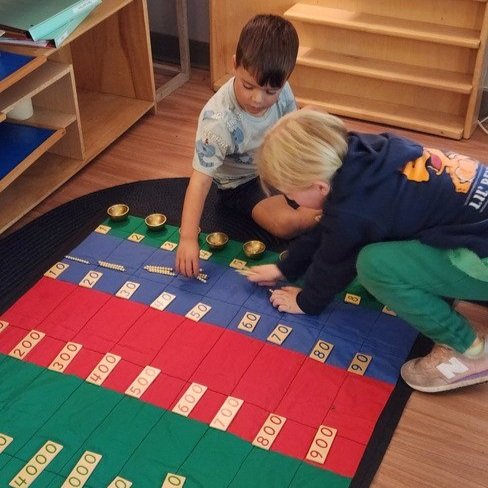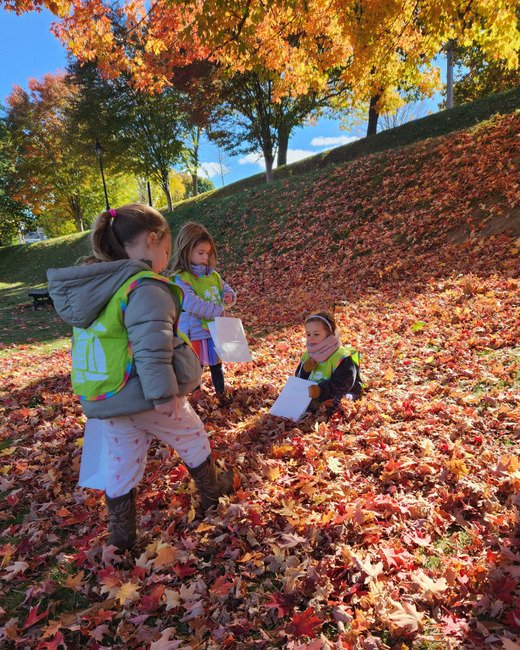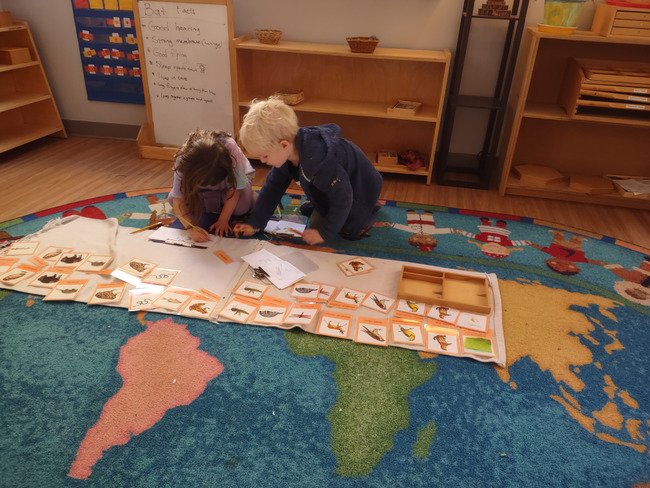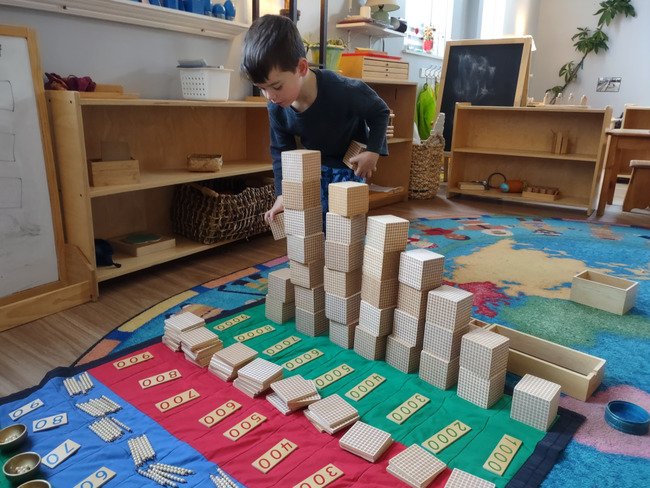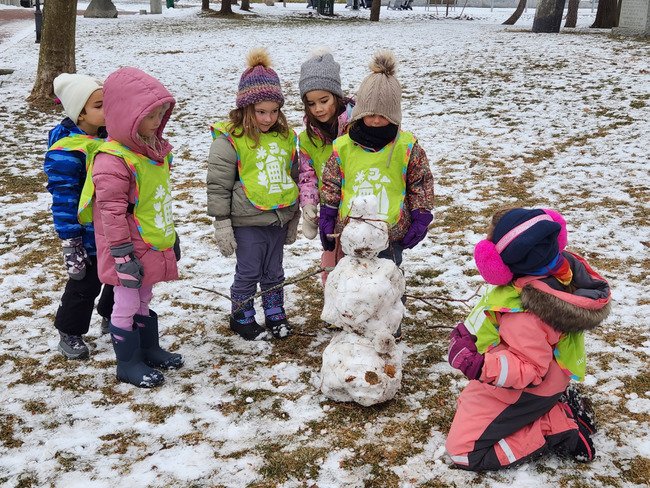kinder house
AGES 5 TO 6 YEARS OLD
kinder house program
Children enrolled in Kinder House at Newburyport Montessori School experience a prepared, child-centered environment that encourages active learning through exploration and discovery. Children have access to multilevel experiences and activities of varying degrees of complexity. They are able to use concrete materials that allow for individual differences and natural variations in their ability.
Children enjoy learning and discovering new things on a daily basis. They learn through individual exploration and during group circles that are part of the afternoon program. They have the opportunity to explore curriculum areas more fully, learn more advanced problem solving skills, and work collaboratively. Friday’s are often a day for local walking field trips, which may include a visit to our local fire, police, and US Coast Guard Stations.
main program goals
-
The first goal involves basic skills. We want to give each child opportunities to progress in mathematics and language, as well as science and geography, keeping in mind that each child learns in his or her own way and at his or her own pace.
-
The second goal is to introduce the children to the experiences that enrich our lives, such as music and art. Our goal is not to instill detailed knowledge and faces, but rather to capture the imagination and keep alive the instinctive curiosity children have about all aspects of their lives.
-
The third goal is to provide children with a warm, loving and secure environment that meets their individual needs. Children are closely observed and given appropriate lessons, as well as the freedom to repeat lessons as often as desired in order for mastery to be fully accomplished.
curriculum goals
-
Identify upper and lower case letters
Develop a foundation in phonics and letter recognition
Write own first and last name
Develop vocabulary and appreciation for new words
Understand concepts of print (letter, word, sentence, left-to-right and top-to-bottom directionality)
Develop listening comprehension
Understand concept of rhyme
Develop ability to form printed letters correctly
Develop ability to isolate beginning, middle, and ending sounds
Write using invented spelling
Develop an appreciation for literature
Use oral language to tell stories depicted in drawings
Experiment with different forms of writing (lists, messages, signs, etc)
Develop ability to copy printed writing from various sources
Build sight word repertoire
Develop strong and correct pencil grip, as well as strengthen hand and finger muscles and dexterity
Share and discuss work and ideas with confidence, as well as begin to follow rules of conversation
Learn about concepts of fiction/nonfiction, as well as identify author, title, and illustrator
Build confidence in self-expression
-
Develop association of numeral symbol and quantity
Develop ability to compose and recognize 2, 3, and 4 digit numbers
Strengthen rote counting ability
Develop an understand of simple addition and subtraction
Enhance skip counting skills
Solve oral word problems
Identify operations symbols of ‘+’, ‘-’, and ‘=’
Strengthen sequencing skills (to 100)
Develop an understanding of basic measurement and estimation concepts
Develop an understanding of patterns
-
Cultivate a respect for and love of nature and the world in which we live
Develop an understanding of and appreciation for the diversity of human culture and ecosystems
Understand concepts of land/air/water (continents, oceans, land forms, etc.)
Explore the components of the natural world (flora, fauna, the four elements, etc.)
Enhance observation and classification skills
Learn to utilize the Scientific Method (observe, predict, draw conclusions)
Identify basic parts of plants and animals
Develop an understanding of the cycle of the seasons, as well as the sequence of the calendar
Participate in basic experiments with water, air, magnets, sound, etc.)
Develop familiarity with fundamental concepts of the natural world (hibernation, migration, the food chain, life cycles, etc.)
-
Grace and Courtesy
Community awareness
Ability to cooperate as a group member
Ability to listen to others and to express oneself
Appreciate and honor the differences similarities of others
Understanding of friendship
Ability to engage in personal and peer problem solving and conflict resolution
Empathy toward others
Appreciation for peace and for the work of peacemakers in our community
-
Ability to make appropriate work choice independently
Ability to work cooperatively in a group as well as alone
Ability to focus and concentrate on a single task and follow it through to completion
Ability to take directions
Enhance listening skills
Ability to organize oneself and chosen activity
Display imagination and creativity in one’s work
Our four children had extraordinary Kindergarten experiences at NMS and we cannot speak more highly of the importance of that year for them. They loved going to school each day. As parents, we loved watching them soak up every experience and seeing their confidence and independence build. The year solidified the learning that had started in the pre-school classroom and gave them an opportunity to take it to a more advanced level.
Each of our four children had slightly different experiences during the Kindergarten year since the teachers tailored the content depending on the interest of the children. However, there were some common themes. All four left NMS reading, comfortable with math concepts, inspired, and eager to learn. They formed bonds with their same-aged classmates that were new and extremely close.
After attending Kindergarten at NMS, entering first grade at our local public elementary school went smoothly. Our children were academically well-prepared, self motivated, and used to working independently. They entered the new learning environment with skills to handle potential conflicts in a peaceful and productive way, skills that they will draw on for the rest of their lives.
-Sally Milliken and Jim Dooling (Parents)








